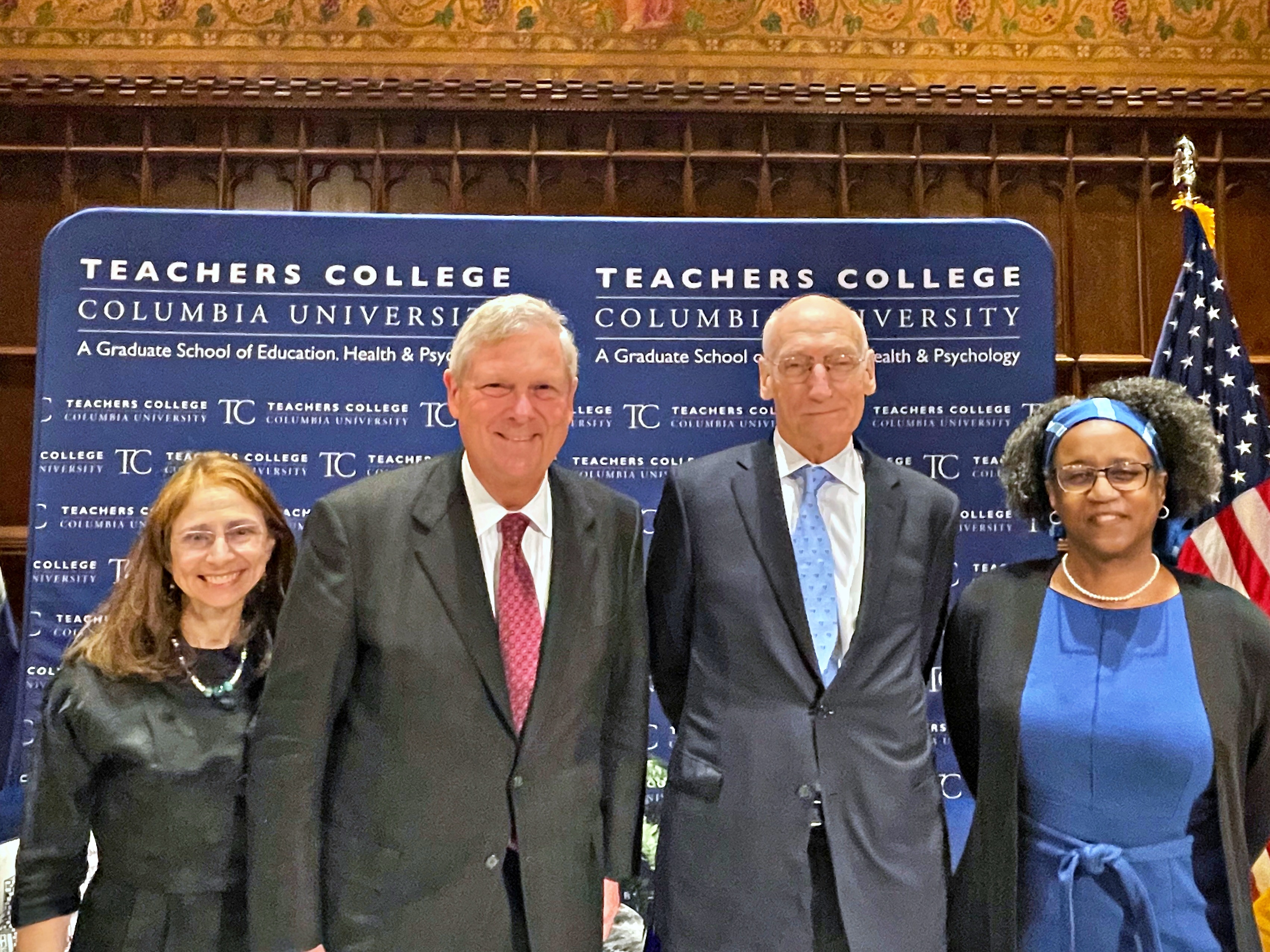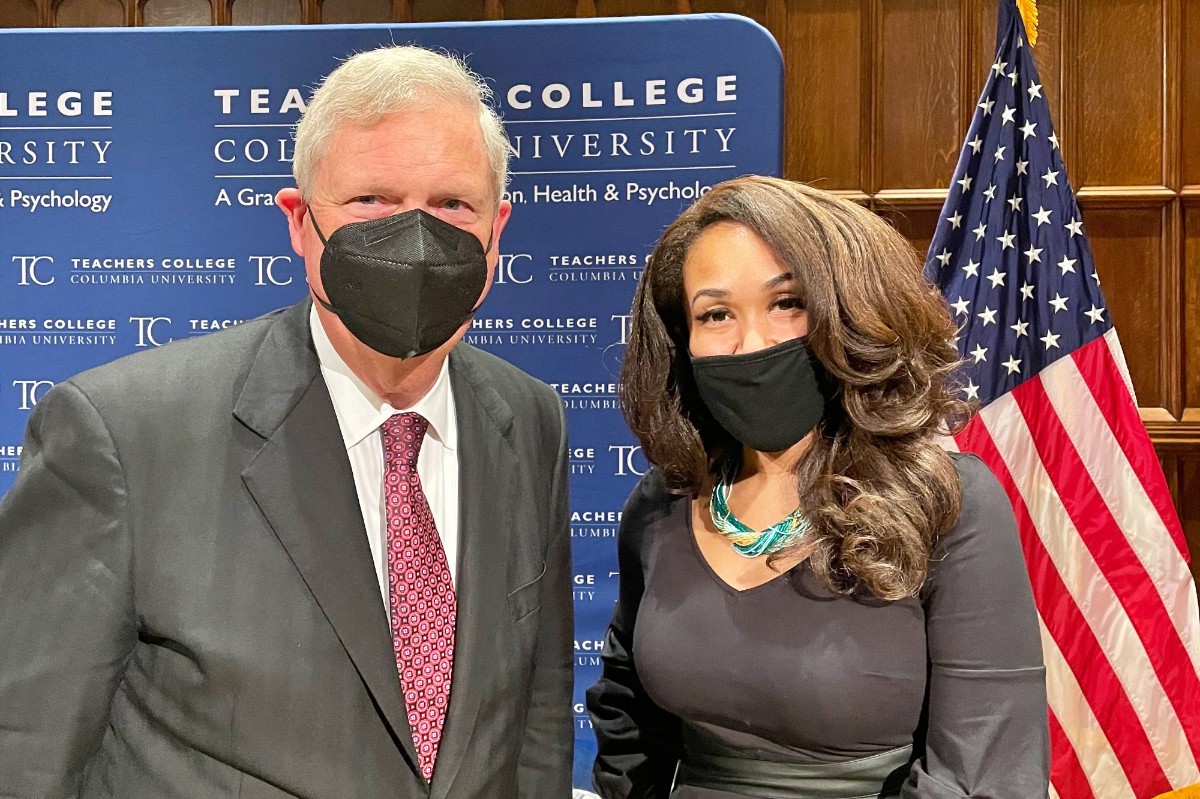In remarks made at Teachers College, U.S. Secretary of Agriculture Tom Vilsack announced that the agency would focus federal food policy on “nutrition security” – providing everyone in the U.S. with access to food that is not only safe and affordable, but also food that nourishes and supports health.
Vilsack’s announcement at TC, the home of the nation’s first academic program in nutrition, was an appropriate venue for a discussion on nutrition security, which President Thomas Bailey noted in his opening remarks. “Grace Dodge, TC’s founder and a notable 19th-century philanthropist, established a kitchen garden school in Greenwich Village in 1880, to instruct poor, immigrant women in the domestic arts, including the cultivation and preparation of nourishing food,” he noted.
The College’s authority in nutrition education and access has parlayed into the Program in Nutrition’s Laurie M. Tisch Center for Food, Education & Policy, a critical research apparatus that “plays a frontline role in maximizing the dollars that the U.S. Department of Agriculture is spending on food and nutrition programs,” said Stephanie J. Rowley, Provost, Dean and Vice President for Academic Affairs.

Pam Koch, Mary Swartz Rose Associate Professor of Nutrition Education; Secretary Tom Vilsack; President Thomas Bailey; and Provost Stephanie J. Rowley. (Photo courtesy of Trish McNicholas)
The Tisch Center’s crucial research and advocacy in national conversations related to nutrition set the stage for Vilsack, who discussed how his department’s emphasis on nutrition security rather than broader food security will be tackled with a four-pronged strategy. In policy that attempts to leverage all of the Department of Agriculture’s assets, leaders will focus on providing life-long, meaningful nutrition support, broadening access to healthy food, collaborating with partners on nutrition science and prioritizing equity.
“We learned during this pandemic the linkage between nutrition security and health…Poor nutrition is connected to illnesses that take over 600,000 lives every year before the pandemic and today,” said Vilsack, who released his department’s new plan that evening. “Covid was essentially a wake-up call – a very specific reminder of what we’ve known for some time, that there is indeed a connection between our overall health and our diet. And it’s important and necessary for us to begin having a broader conversation with the country about this – not in a judgemental way, not in a critical way, but in an informative way.”
Nutrition security, Vilsack explained, will also be supported by new measures that the Biden Administration is taking to strengthen local and regional food production – a measure expected to make nutritious food more easily accessible throughout the U.S.
Vilsack’s remarks were followed by a discussion moderated by TC’s Pam Koch, Mary Swartz Rose Associate Professor of Nutrition and Education and Faculty Director of the Tisch Center. The conversation, streamed online and conducted in front of an audience at TC, covered everything from nutrition education, sustainability and equity.

Secretary Vilsack and Sara Abiola, Executive Director of the Tisch Food Center.
“Achieving nutrition security is also about alleviating inequities, as you talked about, because that way we’ll have a more equitable future, and that way, we raise everyone up,” said Koch, later noting that one of the strengths of the department’s Supplemental Nutrition Assistance Program (SNAP) is being supported by “people from your community, possibly people with the same background who look like you” to connect.
Building connections between those in need and assistance programs is one of the department’s most consistent challenges, with Vilsack noting that only 50 percent of Americans who are eligible for nutrition support for Women, Infants and Children (WIC) participate.
“We need to get that information into the culture, so it’s readily available and repeated,” Vilsack noted, explaining the need for nutrition access resources and support to be available through non-USDA entities like schools, churches, food banks, etc.
Vilsack and Koch continued the conversation by discussing how the Tisch Food Center at Teachers College has the Food Ed Hub to support equitable food and nutrition education for all NYC students.
Watch Vilsack’s remarks and conversation with Koch in the video player above.